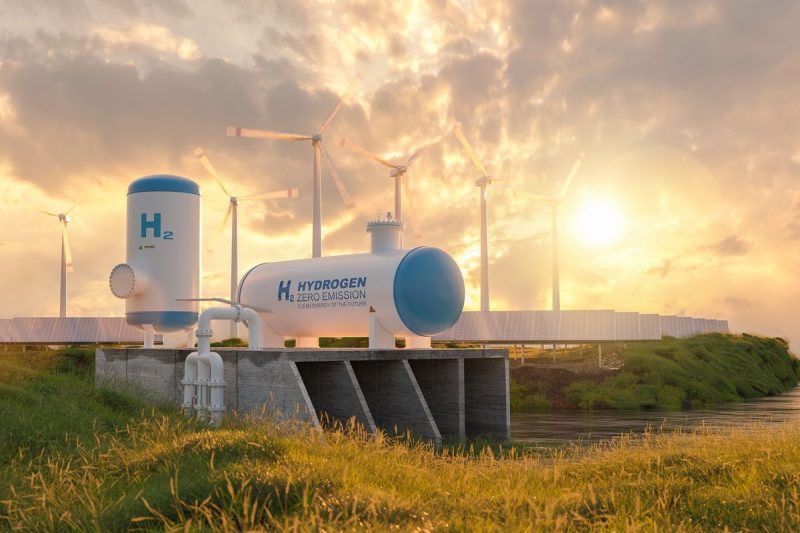As we look at the energy landscape today, one cannot fail to notice a significant shift happening – a transition from fossil fuels to cleaner, renewable energy sources. Among these renewable sources of energy, hydrogen is being termed as the next big thing, the fuel of the future.
The promise of hydrogen as an energy source lies in its abundance, versatility, and low emission characteristics. Hydrogen is the most abundant resource in the universe and is readily available on earth in various forms such as water and natural gas. Its versatility stems from its potential use across various sectors such as transportation, heating, and electricity generation.
In terms of emissions, hydrogen fuel, when burned, only emits water vapor and heat but no carbon dioxide, thus considered a clean energy source. This zero-emission attribute makes it appealing in the fight against climate change and global warming.
As we approach the year 2024, there has been a global surge in interest and investment in hydrogen energy.Driven by policy initiatives and a drop in production costs, there has been a surge in hydrogen investment, presaging a hydrogen economy. Governments worldwide are rolling out strategies and committing funds in support of hydrogen technologies. For example, the EU has announced an ambitious plan to install 40 Gigawatts of green hydrogen electrolyzers by 2030, while South Korea is aiming to produce 6.2 million fuel cell vehicles and install 15 GW of fuel cell power plants by 2040.
The private sector is not left behind either. Industries are making sizeable investments in hydrogen tech companies and projects. Hyundai has already released a mass-produced hydrogen vehicle, Toyota, Honda, and GM are not far behind, and aviation giants like Airbus envisage a hydrogen-powered plane by 2035.
The latest dip in the cost of producing hydrogen is another compelling reason to consider investing in it now. The main reason for high hydrogen prices has always been the expensive and energy-intensive production process. However, according to the Hydrogen Council, the total cost of hydrogen is expected to decline by up to 50% by 2030, making it more economically feasible.
Despite these encouraging signs, investing in hydrogen also presents a number of challenges. Infrastructure for hydrogen fuel, like fueling stations and pipelines, is still in its infancy, making widespread adoption and feasibility a problem. There is also an issue with the production of hydrogen. “Green” hydrogen, the cleanest form of hydrogen, produced through electrolysis powered by renewable energy, is not yet produced at scale.
Moreover, there is competition from other energy sources. Although hydrogen has numerous benefits, there still exist other energy forms like solar, wind, and nuclear that are already widely adopted and continue to decrease in cost. Therefore, whether hydrogen will be the dominant energy source of the future is not entirely certain.
In conclusion, the projected growth in the hydrogen industry along with the serious commitment towards hydrogen technology by multiple global governments and corporations make the current time a potentially good one for investing in hydrogen. However, potential investors need to carefully consider the challenges and uncertainties that currently exist.
However, the global push towards cleaner energy sources, the falling cost of hydrogen production and the technological advancements in the field all strongly suggest that the hydrogen economy may well be on the horizon. Given these factors, the future of the hydrogen sector looks to be incredibly promising. For the forward-thinking investor, there’s no better time to invest in hydrogen than now. The clear signals are that this could be an investment that pays considerable dividends, both in terms of financial returns, and in helping to create a more sustainable energy future. Therefore, while due diligence is key, now could be a good time to add hydrogen to your investment portfolio.
Overcoming these challenges will require a collective global effort, guided by both governmental and industrial investment. The progress we’ve seen thus far is just the beginning of the sector’s potential. As technologies evolve and mature, we can expect the hydrogen industry to come into its own, making now an ideal time to consider such investments. While hydrogen doesn’t come without its set of challenges, the potential upside in the long run seems to be worth the risk, making it a good option for investors to consider in 2024.
Overall, with the proper government policies and industrial commitment, hydrogen as an energy source has significant potential. As we continue towards a more sustainable future, it’s evident that hydrogen will play an irreplaceable role.
Considering all the developments and potential in the hydrogen sector, the argument can certainly be made that now is indeed a good time to invest in hydrogen. The factors at play make it an appealing proposition for forward-thinking, environmentally-conscious investors willing to take on the risks and challenges. We are likely standing at the beginning of a new era, where hydrogen plays a pivotal role in our energy future, making this an exciting time to get involved.
Is now a good time to invest in hydrogen? That’s a resounding yes, given the developments. It seems like the world is at a turning point, and hydrogen stands as one of the potential keys to unlocking a greener, more sustainable future. This is the perfect time to get involved in something that promises substantial growth and the potential to revolutionize our energy systems.




